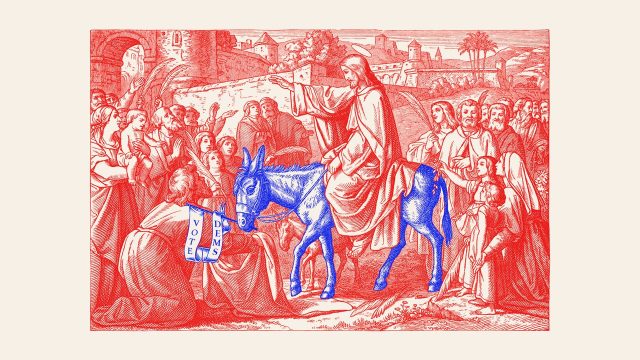
With just over a year to go until the 2026 midterm elections, Democrats are looking for new ways to win over voters at the ballot box. One of their strategies is to push a faith-based agenda that’s often more associated with conservatives. This isn’t the first time the Democrats have used religion to their advantage. (Former President Barack Obama made large gains with religious voters in 2008.) But as elections creep ever closer, Democrats are hoping an appeal to religion will help make the contest a referendum against the conservative movement.
How are the Democrats using religion?
The party is testing “whether church-going, Bible-quoting Democrats can connect with voters — and provide an early gauge of whether messages rooted in spirituality will appeal to the party’s base,” said CNN. This is especially noteworthy given the continuing demographic skews among the parties; Democrats are “increasingly secular, while growing shares of those who attend church regularly identify themselves as Republicans.”
These trends “come in part as a reaction to Republicans using religious messages to advance conservative positions on issues like gay rights and abortion,” said CNN, but also “reveal deep divides within the Democratic Party over the role of religion in government.” Only 38% of Christians, including just 24% of Evangelicals, identify as Democrats, according to a February 2025 Pew Research Center poll (though the figures are higher among Jews, 66%, and Muslims, 53%).
The push to reverse these slumping trends and bring in more religious voters continues. While former President Joe Biden often touted his Catholic faith, the Democratic pivot toward religion is “signaling that he is no longer the exception to the rule,” said The New York Times. Democrats now “see discussion of faith as a way to introduce themselves, explain their values and find common ground.”
Who are some Democratic candidates doing this?
Two notable names include Iowa gubernatorial candidate Rob Sand and Texas state Rep. James Talarico, though Georgia Sen. Raphael Warnock, a pastor, is another high-profile figure. Both Sand and Talarico have tried to use their own faith to generate buzz about their campaigns.
Sand has been the Iowa state auditor since 2019 and is the “only Democrat elected to statewide office in Iowa,” said The Wall Street Journal. He is a candidate in Iowa’s 2026 gubernatorial election and has “mentioned his Lutheran faith” on “numerous occasions.” Despite his religious background, Sand “backs several positions traditionally supported by Democrats, including abortion rights.”
Iowa Republicans have cautioned their party that Sand’s candidacy should be taken seriously. “Churchgoer, gun-toter, state auditor, taxpayers’ watchdog. Sounds a little bit like us, right?” Bob Vander Plaats, a prominent Christian conservative in Iowa, said of Sand earlier this year, calling him a “very real opponent.”
A few states away is Talarico, who has served in the Texas House since 2018. He is a candidate in Texas’ 2026 Senate race and represents a “young, charismatic foe of Christian nationalism, who is himself studying to be a minister,” said Rolling Stone. Talarico is “far from an atheist — so when he speaks out against power-hungry Christians, he does so from his own religious convictions.”
“What you’re seeing is a perversion of Christianity,” Talarico told Rolling Stone. “You can call it Christian fascism or Christian nationalism. Essentially, it’s the worship of power.” Republican extremism is “gonna go down swinging. I just hope it doesn’t hurt too many people on its way down.”
Politicians like Rob Sand and James Talarico have made a name for themselves pushing their faith





